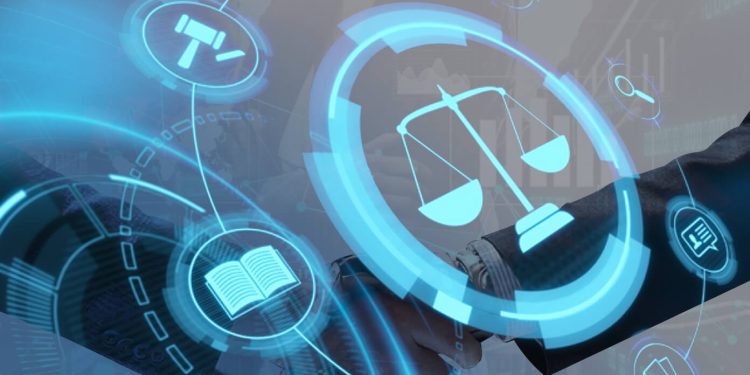Technology has had a significant impact on work-life across industries, and the practice of law is no different. Especially during the pandemic, legal technologies have proven invaluable. In 2022 and beyond, as the law industry works on post-pandemic strategies, we cannot help but think about the most significant legal tech trends that will shape the industry in the near future. So here are the top legal tech trends to follow in 2022 and beyond.
More emphasis on enabling better collaboration
Improving client experience includes improving several aspects, such as – communication, collaboration, continuous feedback, and improvement. This year, we will see more legal firms investing in technologies to allow lawyers to communicate and collaborate virtually through easily accessible platforms like Microsoft Teams and Zoom. In the past two years, we have already witnessed significant changes in IT priorities at many firms. For example, the ones using Skype switched to MS Teams and Zoom at the start of the pandemic to enable better internal and external collaboration.
Engagement and delivery will be even more crucial
These two aspects are essential for legal firms to gain customers’ trust. For example, timely updates, streamlining information delivery through client extranets, and case financials are priorities for firms. Many firms have awakened to the fact that their customer experience through extranets has been pretty unsatisfactory, and by modernizing such interactions, they can improve the experience. That’s where legal tech steps in. It allows better collaboration through web portals that connect the legal team that supports them with the clients’ experience.
Continuous improvement through client feedback
Simple tools like Survey Monkey can provide law firms an excellent opportunity to learn and evolve. They can be used to obtain specific insights into how customers feel about the experience delivered by the law firm. Legal firms often find it very difficult to reach the right people at the right time. Providing proactive updates based on customer feedback and improving their experience can prove to be a game-changer. Following up on the case delivery is also a great way of getting feedback from the customer. Law firms don’t just get an opportunity to improve, but also they can grow with it.
Improving client experience with the help of advanced communication technologies
With the help of better communication tools, law firms can effectively communicate to the customers their unique selling points and how easy it is to do business with them. Products like chatbot technology make it a lot easier nowadays. They allow legal firms to provide information in real-time, answer questions about their services, and bridge the gap between finding out about service and signing up for a service.
More focus on technology solutions to make hybrid working easier
Since the pandemic, this has been a big challenge for legal firms. Understanding everyday tasks, the who’s who of the organization, HR-related policy questions, and simple expense queries can become much more challenging to answer when working remotely. For new workers that haven’t been able to build relationships, getting answers and understanding simple things become even more complex. Chatbots solutions can serve as connecting links between employees and all the knowledge documents.
Another technology that can facilitate hybrid working in legal firms is WIFI 6 technology in employees’ homes, which would allow the employees to benefit from a stable connection. Towards the end of 2021, several firms have already adopted the WiFi6 protocol.
Wide-Scale automation of administrative work and research
Automation of admin tasks will enable senior lawyers to scale out. We’ll also see more investment in NLP technology to accelerate the automation of legal research. Products like – Practical Law from Thomson Reuters is an excellent example of such automation technology. The initiation has already begun; soon, we’ll see more investment in this area leading to the evolution of this technology to a point where it will become more accessible, and legal practitioners will be able to research across multiple platforms in easy ways.
Increased use of technology solutions to market law firms
Legal firms are businesses too, and they need to grow their business to survive in the highly competitive market. So, we will see an increased use of technology solutions to enhance legal firms’ business. Tools like Jarvis, which uses AI technology to create marketing copies, or GPT 3 technology, which uses deep learning to create human-like text, can be handy for creating high-quality content for legal firms’ digital marketing strategies.
More significant push for adopting low-code or no-code platforms
Lo-code and no-code platforms, which enable lawyers to build and deploy digital applications using minimal coding or no coding, will gain more prominence in the times to come. They allow rapid adoption of automation and help automate business processes more significantly. For example, Termi, a process automation platform, can help with this. Another tool is HighQ by Thomson Reuters, which allows for workflow and process automation.
Leveraging data more meaningfully
Data held in law firms is invaluable when used the right way. In 2022 and beyond, more law firms will start leveraging data beyond the dashboard and traditional reports. Natural language processing can help them get answers minus the complexity of going to a particular system. When getting answers becomes easier, legal firms can leverage it to support their business function and introduce efficiencies into the process.
Law firms can leverage enhanced trend analysis and automate financial auditing to benefit their business. Of course, data quality and ownership will be critical to deriving benefits from data. That’s why it will be essential to have a sound data strategy. Ascertaining data ownership and ensuring the data is clean and well-maintained will be crucial to getting better outcomes in terms of the results.
Greater emphasis on RegTech solutions
These tools assist legal firms in quickly navigating different areas within the regulatory landscape, such as compliance, risk management, regulatory reporting, identity management, etc. As regulatory laws become more stringent, we will witness a higher emphasis on RegTech solutions that combine rules-based automation and ML technology with a focus on efficient applications.
An example of such a technology for the law industry is the Gardens Breach Manager, which streamlines the collection, evaluation, and reporting processes to ensure compliance while mitigating risks.
Increase in cloud adoption
Legal firms want to position themselves for the future in the highly competitive landscape. So, we will see more firms seeking cloud-native solutions. With the increased adoption of cloud-native solutions, there will also be an increased push for cybersecurity awareness and solutions.
Wrap Up
As legal technology expedites workflows, increases the value of services delivered to clients, and frees teams from mundane tasks, it will continue to change the legal landscape in the coming years. To keep ahead of the game, it is vital to stay abreast of the latest trends and new applications. After all, the pandemic has proven that we need to be agile to face any challenges that stand between us and our success.
situs gacor rtp slot slot gacor







